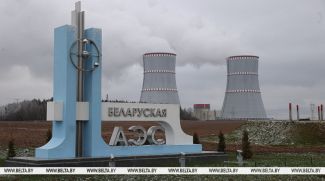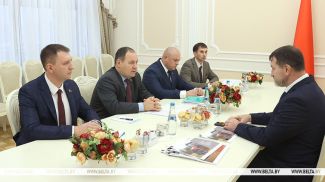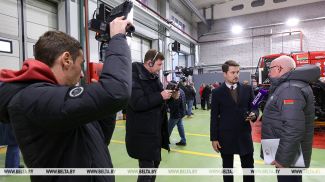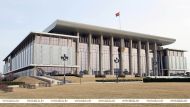MINSK, 28 October (BelTA) – Belarus needs to maximize its domestic processing capacity in the light, Belarusian Deputy Prime Minister Yuri Nazarov said during a joint session of the House of Representatives and the Council of the Republic of the National Assembly in the Oval Hall of the House of Government on 28 October, BelTA has learned.
“The main task for the near future is to expand to the maximum the processing of domestic raw materials: flax, cattle hides, and also the raw material base of our chemical companies (polyamide threads, polyester fibers and threads, PAN-fiber, nonwoven materials),” said Yuri Nazarov.
In his words, there are certain problems in this area. The head of state has set a task to ensure stable production of 55,000 tonnes of flax fiber, including about 13,000 tonnes of long fiber. “In order to fulfill the task, it is necessary to cultivate and harvest at least 180,000 tonnes of flax fiber annually. The capacity of flax mills operating in a three-shift mode is enough to process it. To get such volumes it is necessary to sow flax fiber on an area of about 50,000 hectares. However, since 2018, the areas under flax fiber in the country decreases annually, and only 41,900 hectares were sown in 2021. To ensure flax cultivation in optimal agricultural terms, it is also needed to update and reequip the machinery fleet available in flax-growing organizations,” the vice premier said.
In order to provide quality flax fiber production there are plans for a pilot project to develop a vertically-integrated structure with the participation of Orsha Linen Mill and flax factories of Vitebsk Oblast.
Yuri Nazarov also touched upon the issue of the quality of raw hides. In accordance with the instructions of the head of state, since 1 June 2021, all cattle hides from meat processing organizations have been delivered for processing to the tanneries of the Belarusian state light industry concern Bellegprom. “Processing all the rawhide is not the main task. The main thing is to obtain a product with high added value. The finished leather goods should satisfy the needs of Belarusian footwear and leather goods manufacturers in terms of assortment, quality and price. The main tannery - Minsk Leather Production Association – will be re-equipped for this purpose,” the vice premier said. The head of state also instructed to process at least 80% of the country's tannery at the Minsk Leather Production Association by 2025. At present 60% of raw tannery products are processed.












